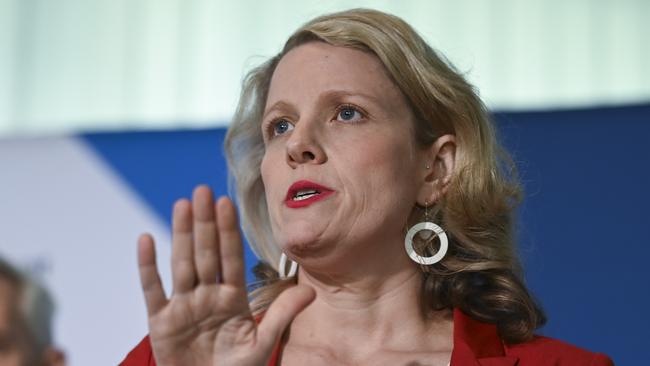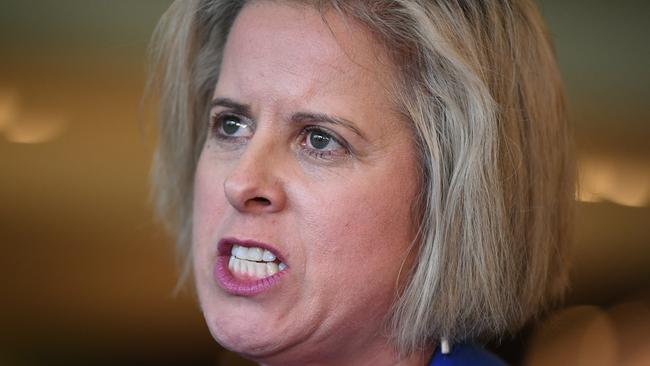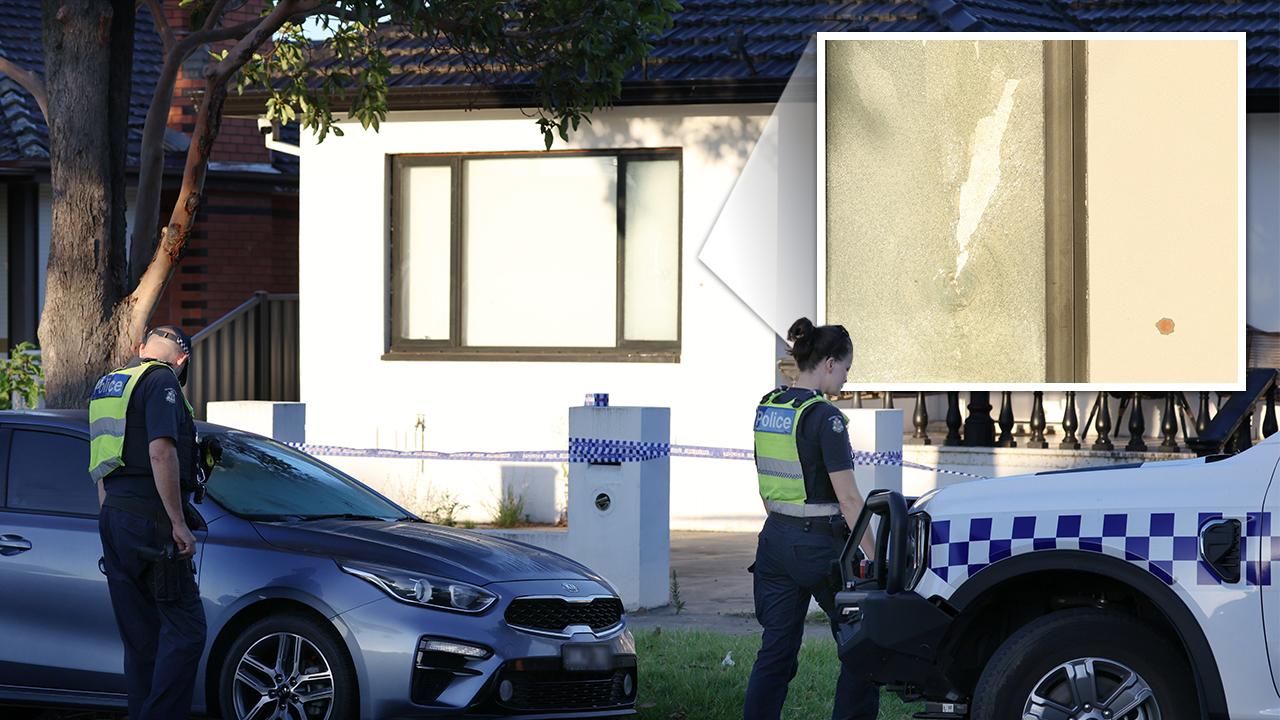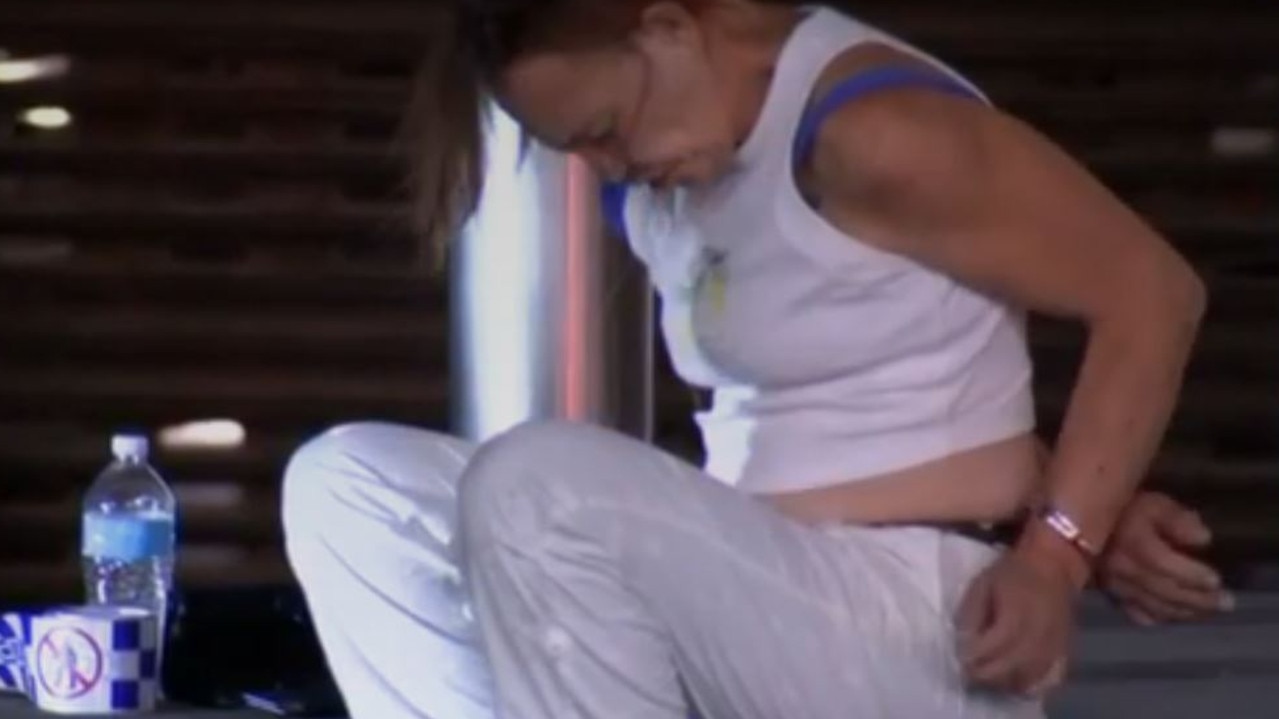Albanese govt wants construction to recruit locals before going overseas
The Albanese government is pushing construction companies to recruit locals first before going overseas despite a massive skills shortage national of tradies and labourers.

Victoria
Don't miss out on the headlines from Victoria. Followed categories will be added to My News.
The Albanese government wants construction companies to recruit locals first before going overseas, despite a new report showing the sector is plagued with massive skills shortages.
The national shortfall of tradies and labourers is set to peak at 131,000 workers next year, according to Infrastructure Australia’s latest market capacity report.
Major Victorian projects are now at risk of further cost blowouts and delays as they grapple with workforce constraints and low availability of local concrete, timber and steel.
Governments are now under pressure to better manage their infrastructure pipelines, as more supplies will need to be imported from overseas.
Victoria had a shortage of 38,110 infrastructure workers including structural engineers, labourers, project managers and concreters in October, when the national shortfall hit 229,000 full-time workers.

Warrnambool and the state’s south west are set to be hit hardest by labour gaps, while demand in Melbourne is set to spike in 2026 when the infrastructure pipeline is at its peak.
Under landmark changes to the migration system, overseas tradies will be able to enter through a lower tier pathway but have been excluded from the top earning visa category in a move designed to save the best-paying blue collar jobs for locals.
Home Affairs Minister Clare O’Neil defended the decision saying “our government feels strongly that for sectors like trades, you should have to prove that there is a skill shortage before you go to recruit overseas”.
“Our strategy changes don’t make it harder to bring trades people to Australia. We are just not making it easier,” she said.
Master Builders Australia chief executive Denita Wawn said the lack of highly skilled tradies could sabotage Australia’s housing goals.
“While we recognise that skilled tradies are eligible for entry via the Core Skills pathway, there is an inconsistency between the earning potential of these roles and the tier they are in,” she said.

Adam Copp, chief executive at the nation’s peak infrastructure advisory body, said transport would remain the dominant sector in Victoria with $67bn worth of work in the five year pipeline.
But demand for housing, energy infrastructure and defence projects was putting building supply chains under stress as they all draw from the same workforces, quarry products, steel and timber.
Melbourne is expected to experience acute quarry shortage as several quarry consents are due to expire before new ones can be established.
“Australia’s lack of domestic capacity to supply building materials exposes investments to cost-overruns, delays and future global supply chain risks,” Mr Copp said.
He called on other states to follow Victoria’s lead and install quarry approvals coordinators to fast-track new quarries and expand existing ones to support local demand for “low supply” products such as sand.
The hardwood timber industry is also set to take a hit, after the Victorian government brought forward a ban on native timber logging to January 1, 2024.
The forecast will come as another blow for the small residential building industry, which is suffering from a historically high number insolvencies due to fixed-priced contracts, poor risk methods, and higher costs.
Mr Copp welcomed the changes to the migration pathways but said the industry also needed to develop “homegrown skills”, change the “high conflict” culture and attract more female workers.




